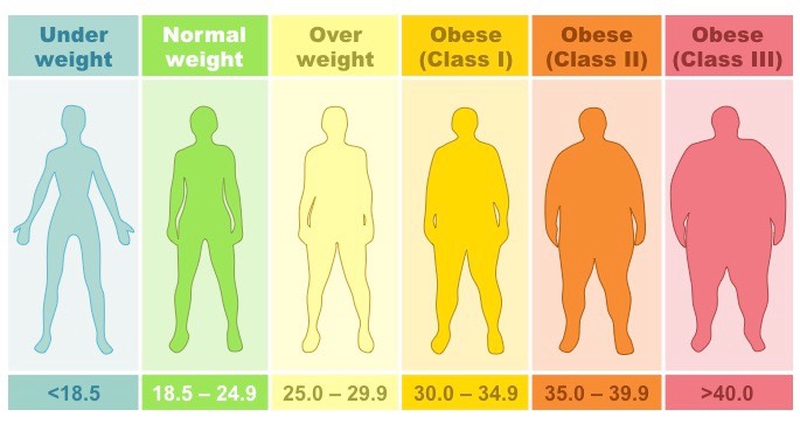About 30% of children in the U.S are overweight, and the sad reality is that this number is growing. While children generally have fewer weight related health complications than adults, there is a likelihood of carrying this problem over into adulthood. They’re also susceptible to stress, low self-esteem and sadness. Some of the complications associated with a being overweight during childhood are high cholesterol, high blood pressure, early heart disease, bone problems, diabetes, as well as skin conditions such as fungal infections, acne and heat rash. If you are worried about your child’s weight issues and are wondering what the causes of childhood obesity are and what you can do about it, read on.

What Causes Childhood Obesity?
Genetics
In families with a history of obesity, the children are at an increased risk of struggling with obesity. However, there is a good chance that your child might not become overweight. This is not necessarily a genetic issue and can be down to shared behaviors in the family such as activity and eating habits.
Diet and Activity
One of the most common causes of childhood obesity is poor diet and low activity level. Today, children are becoming more and more sedentary. You’re more likely to find them playing video games or watching movies in the house than running around with their friends.
Medical Condition
There are a number of reasons why children become obese. The biggest culprits are genetics, unhealthy eating habits and lack of physical activity. While possible, it is very rare for obesity to be caused by a medical condition. You should get your child examined by a doctor to determine whether the cause of their obesity could be a medical condition such as hormonal imbalance.
How Do I Know if My Child Is Overweight?
While you can draw conclusions based on their appearance, the best person to determine whether your child is overweight is their doctor. The process involves measuring the child’s weight and height and using the figures to compute the BMI (Body Mass Index). The doctor will also put into consideration the age of the child and their growth patterns.
How to Prevent Childhood Obesity
Be an Example
The first thing you need to do is live by example. You can’t be overweight and inactive and expect your kids to be active and watch their diet. If your children see that you’re physically active and have fun doing so, they are likely to follow your example. Once they pick up the habit, they’re likely to be active all their lives.
Plan Family Activities
When you plan family activates, prioritize things that involve everyone in physical activities like walking, hiking, biking or swimming. This helps make working out a fun activity that everyone takes part in. Lack of activity is usually one of the causes of childhood obesity.
Be Sensitive
While you might want your obese child to start becoming physically active, you don’t want to throw them into the deep end of things where they might not be comfortable. You need to realize that your child might feel uncomfortable about taking part in certain activities. Help them find something that’s not too difficult to start with and won’t embarrass them.
Avoid Sedentary Activities
Playing video games and watching TV together can be a great pastime. Just don’t make it the default thing you do together. In fact, you should try as much as possible to make it taboo in your family. Your child will get used to the ‘new normal’ with time.
Adjust Eating Habits
Today children are eating larger portions and are more likely to eat snack foods and sugary beverages than healthy meals. This is one of the major causes of childhood obesity. Most processed foods have added sugar including staples such as peanut butter, canned foods and cereal. This makes children develop a preference for these foods at the expense of nutritious and more helpful foods. You should make a conscious effort to help your children develop a preference for healthier foods and minimize on junk foods. Limit the portions they can eat during meals since kids tend to eat as much as they’re given.
Research shows that junk foods tend to be as addictive as cigarettes so you should watch what your children eat. As a rule, you should avoid meals with more than 10 grams of sugar per serving.
Encourage Fruits and Veggies
Adding more fruits and vegetables to the diet can help a great deal in preventing obesity in children. Ensure that you have cut up pieces of vegetables such as carrots, celery and snap peas readily available in the refrigerator. This will make it convenient for your child to eat vegetables whenever they’re hungry as opposed to stuffing themselves with junk food. You should have the fruit bowl full at all times and give your child fruit regularly as snack or dessert. Fruits and vegetables are nutritious, have anti-cancer properties, and contain plenty of fiber to keep your child feeling full for longer.



View All Comments /Add Comment